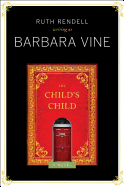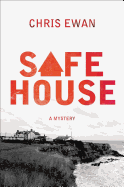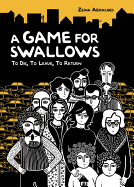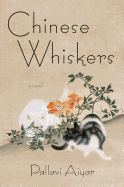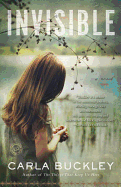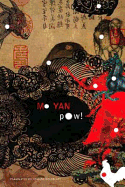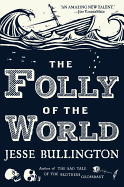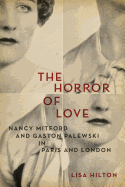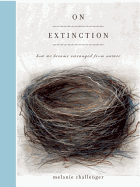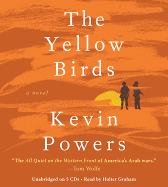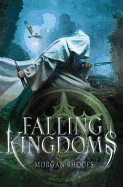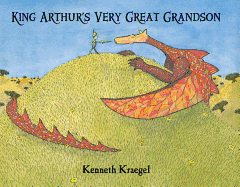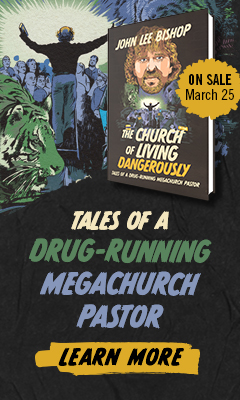Week of Friday, December 21, 2012
There comes a point in the holiday season when eyes glaze over at the wealth of good books, and it's hard to choose one over the other; for booksellers, it's the point at which the only difference between Fifty Shades of Grey and Fifty Shades of Chicken is which is closer to hand. We're here to help with suggestions.
Cycling Science: How Rider and Machine Work Together by Max Glaskin (University of Chicago, $30). Text, charts and art answer questions: How does my brain help me ride? How can I calculate the perfect fit? Does skin really affect riding efficiency (or, should I shave my eyebrows as well?)? Great for recreational riders to pros.
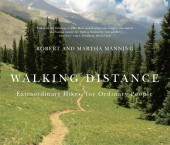 Long-distance walking helps focus our lives, according to Robert and Martha Manning. Walking Distance: Extraordinary Hikes for Ordinary People (Oregon State University Press, $35 paperback) showcases 30 of the world's great long-distance trails, from inn-to-inn walks to backpacking. It will have you dreaming of your next trip to the famous Camino de Santiago or the Ocala Trail in Florida.
Long-distance walking helps focus our lives, according to Robert and Martha Manning. Walking Distance: Extraordinary Hikes for Ordinary People (Oregon State University Press, $35 paperback) showcases 30 of the world's great long-distance trails, from inn-to-inn walks to backpacking. It will have you dreaming of your next trip to the famous Camino de Santiago or the Ocala Trail in Florida.
Lonely Planet's Best in Travel 2013 ($14.99 paper) covers destinations and trends. Besides the top 10 cities, regions and countries, included are some intriguing (and wacky) categories, like Snakes Alive!, Best Places to See Elephants, Oddest Food Museums, Best Capital Cities Built from Scratch, Great Wall Walks and Marvelous Meteorological Sites.
Closer to home is the Grand Canyon: for Reconstructing the View (University of California, $75), photographers Mark Klett and Byron Wolfe spent five years exploring the Grand Canyon with repro-photography--identifying sites of historic photographs and making new photographs at the precise locations. The original images are "brought into dialogue" with the new, resulting in a stunning volume.
Eliot Porter: In the Realm of Nature by Paul Martineau (Getty Publications, $39.95) is an absolutely exquisite collection of 110 photographs from the man who transformed the concept of nature photography books, and whose images were instrumental in getting the 1964 Wilderness Act passed in Congress. --Marilyn Dahl, book review editor, Shelf Awareness
Chinese Whiskers
by Pallavi Aiyar
Two cats living disparate lives in modern Beijing narrate Pallavi Aiyar's imaginative Chinese Whiskers. Soyabean is a male "only kitten" smothered by the love of his mother and by Nai Nai, a widowed 80-year-old and the eldest member of the middle-class Xu household, which is undergoing a multigenerational tug-of-war. "All that is good in China and noble about being Chinese they reject," Nai Nai complains, referring to her son's and grandson's mockery of great poets, the Peking Opera and even calligraphy. After Soyabean is sold to wealthy foreigners who fawn over his beauty, Nai Nai's spoiled adult grandson hatches a get-rich-quick scheme whereby Soyabean becomes a model for a gourmet cat food company.
In a parallel plot, Tofu, a female kitten, "a dustbin cat," is one of five siblings roughing it on the streets of Beijing. Tofu's family once lived with a Manchu nobleman who served their suppers on silver plates. The communist revolution destroyed the nobleman's wealth and, ultimately, the cats became strays. When a woman from the Cat Protection Society rescues skinny, street-smart Tofu, she places her with the wealthy foreigners who adopted Soyabean.
The paired house cats come to share a loving, pampered existence until their domestic bliss is complicated by the SARS virus epidemic, a tainted pet-food scandal and Tofu's sudden disappearance. Sketched illustrations and regional language references enrich Aiyar's suspense-filled novel, a gentle morality tale about "Old China" versus "New China." --Kathleen Gerard, blogger at Reading Between the Lines
Discover: A morality tale about life in modern China as told from the points of view of two cats who come from different backgrounds.
Invisible
by Carla Buckley
"There are different kinds of prisons," Carla Buckley writes, "some with walls and floors and doors, and others built even more sturdily out of things you can't see--love and hope and fear."
Dana Carlson escaped the prison of her small hometown, Black Bear, Minn., or so she thought. She made a life of bringing down buildings when she became part owner of a demolition company. Despite all the literal freedom in her life, her past and the walls she created in her family continue to imprison Dana. So when her niece calls to say Dana's sister is dying of kidney disease, Dana isn't sure if she has dynamite powerful enough to free herself and those she loves, figuratively speaking.
Like Buckley's debut novel, The Things That Keep Us Here, Invisible offers readers haunting questions without right or wrong answers. Buckley's ability to create fully realized characters with whom readers easily empathize makes the ethical dilemmas the characters encounter frighteningly powerful. Additionally, Buckley's obvious understanding of the science included in the plot--biological and chemical--intensifies the novel's suspense and will likely have readers scrutinizing the ingredients in everything they buy.
The complexity of Invisible creates a satisfying reading experience, but it's Buckley's careful and purposeful depiction of the characters' relationships that cements everything together, allowing readers to envision their own prisons built of "love and hope and fear." Invisible is simultaneously terrifying and encouraging. What more should a great read be? --Jen Forbus of Jen's Book Thoughts
Discover: One woman's fight to find the truth and free those she loves from their invisible bonds.
Pow!
by Mo Yan, transl. by Howard Goldblatt
Chinese children who lie a lot are called "powboys," but the 20-year-old narrator of Mo Yan's Pow! assures you he's telling the truth. He's come to the crumbling temple of the Horse Spirit to tell the Wise Monk there what happened when he was 10 years old in Slaughterhouse Village, where the farmers became rich by infusing meat with water to increase the weight.
Blessed with a powerful digestive system, a perpetual hunger for meat and the ability to hear meat speaking, the boy revolutionizes the village's meatpacking industry and becomes immortalized in a statue that arrives 10 years later at the temple where he is seeking refuge, at the height of the Carnivore Festival, for inclusion in the opera From Meat Boy to Meat God.
Packing his novel with dozens of colorful characters, from gangsters to nuns, from butchers to movie stars, the endearing Mo Yan is a master of goofy comedy, a Nobel Prize winner who can't resist pratfalls and slapstick, with stampeding ostriches and windblown toupees. Never going where you expect, his plot constantly loops into backstories and teases with flash-forwards, building to a climax with shocker revelations and a grand guignol murder, leaping and bounding to its berserk ending in an over-the-top, cinematic 41-mortar salvo, as the 12-year-old hero demolishes the settings one by one in which the novel has unfolded, in pursuit of the corrupt but kindly village head who may or may not be the mastermind behind this delightful epic's tragic plot. --Nick DiMartino, Nick's Picks, University Book Store, Seattle
Discover: This novel by Mo Yan--2012's Nobel laureate for literature--is a savage satire of the meatpacking industry, greed, rivalry and revenge, as told by a young Chinese boy who becomes a Meat God.
Mystery & Thriller
The Child's Child
by Ruth Rendell writing as Barbara Vine
When Grace and Andrew Easton's grandmother dies, she leaves her sprawling Victorian home to the both of them. Rather than selling it, as everyone seems to think they should, they decide to move in, dividing the large rooms of the house between themselves. The two siblings, always close, never considered the possible complications of romantic relationships, if and when they arose--so when Andrew brings home his boyfriend, first to meet his sister and then to live there, they are unprepared for the discord the third party brings into the house. Grace, a student of literature, distracts herself from these problems with the manuscript of an unpublished novel from 1951--a tale of sexuality, illegitimate children and sibling relationships that bears striking resemblance to Grace and Andrew's own situation.
With The Child's Child, Ruth Rendell (writing as Barbara Vine) offers readers a story within a story, weaving modern times with a tale of the 1950s that casts our current social and cultural issues in a harsh light. As Rendell moves between the two stories, she subtly points out the differences--and in some cases, similarities--between the social taboos of the two generations, and not always in a kind light. Both stories within The Child's Child are sexual and violent and, as with most of Rendell's work, strikingly psychological in their suspense, resulting in an intricate novel that deals not-so-delicately with important topics of both the past and the present. --Kerry McHugh, blogger at Entomology of a Bookworm
Discover: A compelling story-within-a-story covering the social and sexual norms of the 1950s and today from Ruth Rendell (as Barbara Vine).
Safe House
by Chris Ewan
At the start of Chris Ewan's Safe House, Rob Hale wakes up in the hospital and receives good news: despite painful injuries after a motorcycle wipeout, he has no permanent damage. But when he asks about Lena, the beautiful woman who was with him, no one knows anything about her, claiming he was found alone. Some even question whether he's confused by his sister Laura's recent suicide.
Having hazy memories of Lena being taken away from the accident site by men in what looked like an ambulance, Rob goes searching for her, teaming up with Rebecca Lewis, the attractive private investigator his parents hired to look into Laura's activities before she drove her car off a cliff. The two race to save Lena's life, and end up also uncovering the truth about Laura's death.
Ewan, known for his Good Thief's Guide series, tackles a standalone this time, and Safe House shoots out of the gate like Rob on his motorbike. His everyman quality--the guy is recovering from injuries, so no over-the-top stunts for him--is the perfect anchor for a thriller that gets increasingly complex and dangerous as it unfurls. Rebecca picks up the slack by being scarily competent at handling bad guys and sticky situations. This woman is tough, and she keeps Rob and readers guessing about her true intentions for taking the case. The sympathetic characters, Isle of Man setting, plot twists and Ewan's propulsive prose should take readers on a ride that feels anything but safe. --Elyse Dinh-McCrillis, freelance writer/editor, blogging at Pop Culture Nerd
Discover: A propulsive thriller as fast and twisty as the Isle of Man's Tourist Trophy races.
Science Fiction & Fantasy
Zook Country
by Bill Swears
The world of Zook Country feels authentic: Bill Swears's time in the military informs every page, especially the sections in which the main character, Jake Chestnut, is on patrol killing zooks--superfast and super deadly not-quite-zombies. (Only a handful of talented zook hunters have the necessary reflexes to see even the blur of activity that gives away a zook position.) Humanity lives behind barriers in tightly secured enclaves, protecting themselves from the zook and the ghasten, a ghostly variation on zooks. Though unconcerned with humans, ghasten do attract zook, so teams of ghasten hunters, with their own sets of skills, are also available for hire. Jake and his partner, Gary, get the well-paid opportunity of a lifetime clearing out what used to be a country club. Jake hires a full platoon of other zook and ghasten specialists to combat the undead threat, but finds much more than he bargained for underneath the grounds of the former rich men's playground.
Jake is a man's man, through and through, and comes up flustered time and again as his pretty yet overly qualified secretary saves the company, the day and his heart. The gentle patriarchal tone of some of these passages may grate on some readers, but it's all in good fun for the most part. What surprises about Zook Country isn't the action sequences, which are all clearly written, nor the consistently well-done worldbuilding. Rather, it's the amount of self-awareness and downright introspective nature of the main character, who wears his heart--and his assault rifle--on his sleeve. --Rob LeFebvre, freelance writer and editor
Discover: Solid world building and a compellingly realistic story that offers intelligent, fast-paced action and an entertaining tale of the undead apocalypse.
The Folly of the World
by Jesse Bullington
The Folly of the World bounces around its 15th-century Flemish setting at first, with two prologues: a mysterious pair row a boat over a flooded village in the springtime; come the fall, the condemned Sander Himbrecht escapes a hanging and dives into a river. Soon, though, Jesse Bullington settles into a narrative groove, as a con man named Jan Tieselen encounters Jolanda, a rebellious teenage girl, along a coastal road. Discovering her to be an excellent swimmer, Jan buys Jo from her father and takes her to Rotterdam, where--unexpectedly reunited with Sander--he reveals his scheme. The three will go back to that flooded village, and Jolanda will dive into the sunken house of Jan's illegitimate father to find a family heirloom that will enable him to claim the Tieselen title and fortune. Of course, things don't work out as planned....
Bullington's mashup of late medieval setting and hardboiled plot is exquisite. The conniving Jan, violently paranoid Sander and fast-learning Jo make a perfect noir team, barely able to hold itself together. There's a rough-hewn authenticity to every aspect of the novel, from the period details to Jo's surreptitious observation of Jan and Sander's sexual relationship. Although it's billed as a fantasy, The Folly of the World wears that mantle lightly, as the truly weird stuff--like just what happened to Sander in that river--is never fully explained. But that just makes the story even more deliciously unsettling. --Ron Hogan, founder of Beatrice.com
Discover: Historical mystery fans should be as intrigued by Jesse Bullington's Flemish noir as his growing base of fantasy readers.
Biography & Memoir
The Horror of Love
by Lisa Hilton
Subtitled "Nancy Mitford and Gaston Palewski in Paris and London," Lisa Hilton's The Horror of Love tells the dramatic story of the relationship between the successful novelist and the Free French commander who became one of the most influential politicians in post-war Europe. The title comes from a statement Mitford made to her sister, Diana Mosley, when she saw Palewski, looking happy, with another woman. "So dreadful to prefer the loved one to be unhappy," she said. "Oh, the horror of love."
It is hard to think of any of the sensational Mitford sisters without mentioning all of them: Diana, the beautiful fascist; Unity, the ardent Nazi; Jessica, the lifelong Communist; the quite unconventional Deborah; Pamela, referred to as "the rural one"; and, of course, Nancy--the eldest sister, an author and fashion maven with famously bad taste in men.
Nancy, married to a crashing bore and philanderer, moved to Paris after the war to be with Palewski, one of Charles DeGaulle's right-hand men. Although Palewski told Nancy that he was not madly in love with her, she couldn't stay away from him, living for the few moments of time he could spare for her. He finally married someone else, leaving her devastated. She patterned Fabrice in her novel The Pursuit of Love after Palewski.
Hilton has captured the time and the affair in an entertaining and arch look at Nancy, founder of the concept of "U and non-U," and Gaston, halitosis and all. --Valerie Ryan, Cannon Beach Book Company, Ore.
Discover: A clever, witty look at a man and a woman caught in history, some of it of their own making.
Nature & Environment
On Extinction: How We Became Estranged from Nature
by Melanie Challenger
Poet Melanie Challenger (Galatea) was alarmed to note that while she knew both her grandmother's and her mother's favorite wildflower, she did not have a favorite because she didn't know enough wildflowers from which to choose. In On Extinction, she travels to places that embody the history of human connections to nature and muses on our growing estrangement from our environment.
The title suggests Challenger's initial focus on extinctions: not only of plants and animals, but of cultures, languages and industries. She quickly discovers a growing secondary interest in nostalgia, like our attraction to extinctions, which makes the dodo bird the subject of so much curiosity. In her travels through the Arctic and the Antarctic, England, South America and Canada, she attempts to reunite with nature and find her own favorite wildflower. She also asks: Can humans live productively in this world without destroying it? She is made hopeful by our reverence for the past and for natural beauty.
Challenger brings a loving sense of wonder to the natural world, realizing how little she knows and relishing the process of learning. She looks backwards with the intent of remaking our future relationship with the planet. She does, as one might expect, discuss Muir and Thoreau, but she also turns to Locke, J.S. Mill, Rousseau and especially Darwin, seeking a philosophy of the natural world and our place in it. Highly literate with a lovely, almost reverent tone, On Extinction notes human threats to our environment but ultimately remains hopeful that we can reestablish a healthy relationship with the Earth. --Julia Jenkins, librarian and blogger at Pages of Julia
Discover: A lyrical contemplation of biological and cultural extinctions and their significance in our human future.
Audio
The Yellow Birds
by Kevin Powers
A war novel lives or dies by its narrator. In the audiobook version of Kevin Powers's The Yellow Birds, Holter Graham does a superb job of giving voice to Private John Bartle, a young soldier with an old soul who describes the surreal details of rooftop and orchard combat in Iraq and the flayed state of his psyche after he returns home. As the novel shuttles among scenes in Iraq, Fort Dix, Virginia and Germany, the adjustments Graham makes to the emotional timbre of his voice, along with location- and year-stamped chapter announcements, help the listener follow the novel's shrapnel perspective.
Powers embeds plenty of recounted dialogue and landscape description into Bartle's first-person monologue. Graham does equally well performing the lines of the naïve young enlistees and their caustically realistic sergeant. The author's MFA in poetry underpins Bartle's minimally syllabled yet resonant descriptions of terrain and combat; Graham reads those passages in a gritty declarative rhythm that keeps the lyricism safely under the razor wire. Most crucially, Graham's performance of Bartle's postwar chapters is a powerfully calibrated alloy of revivification and disassociation.
The Yellow Birds burns with the authenticity of experience, from drops of Tabasco in a sleepy soldier's eyes and the omnipresence of dust to talismanic bargains with fate. Unavoidably, there are sensory details of combat and death that are difficult to hear, but Powers's judiciously beautiful prose and Graham's fully committed performance combine to create a testimony of war that illuminates more than it strafes. --Holloway McCandless, blogger at Litagogo: A Guide to Free Literary Podcasts
Discover: A lean, empathetic novel about young American soldiers in Iraq that combines authentic experience with nearly poetic prose, superbly narrated by Holter Graham.
Children's & Young Adult
Falling Kingdoms
by Morgan Rhodes
A heart-pounding prologue kicks off this page-turning tale: two sisters kidnap a baby tied to a prophecy, kill her mother using magic, and then the older sister, Sabina, kills her younger sister.
Next, the author introduces readers to three kingdoms. In the first, Paelsia, an illegitimate noble from the kingdom of Auronos with a chip on his shoulder kills the son of Paelsia's most gifted winemaker after attempting to cheat his father of a fair price. The killer, Aron, is the presumed match for Cleo, daughter of King Corwin Bellos, leader of Auronos, a lush kingdom where the royals live in luxury. Meanwhile, in the neighboring kingdom of Limeros, Sabina resides as mistress of its leader, King Gaios. His son, Magnus, heir to the Limeros throne, is developing "unnatural" feelings toward his sister, Lucia (whom we soon suspect is actually the kidnapped baby, now 16).
The prose may be a bit flabby (certain events are retold from a number of characters' perspectives with no new details added), but the plot moves like the wind, and even with these revelations early on, readers will be anxious to see how the various love triangles and the jockeying for position among the royals play out. Unlike The Hunger Games and Kristin Cashore's Graceling series, this first book in a planned quartet ends on a cliffhanger. The second book, Rebel Spring, is due out in fall 2013. --Jennifer M. Brown, children's editor, Shelf Awareness
Discover: A page-turning chess game among the leaders of three kingdoms, with a mix of magic and mysterious motives.
A Game for Swallows: To Die, to Leave, to Return
by Zeina Abirached, illus. by Zeina Abirached
In this suspenseful graphic novel memoir set in 1984 East Beirut, shells and snipers dominate the streets, and young Zeina is doing her utmost to comfort her little brother. The siblings huddle together in the foyer, the safest section of their family's apartment, and await their parents, who are visiting Zeina's grandparents a few blocks away. Heavy bombardment prevents their mother and father from returning home. Enter Zeina's neighbors, who have formed a tight familial bond in the face of chaos. Elderly Anhala suggests that they make sfouf, a turmeric-based cake, and the children help her whisk together the batter. Hairy, rambunctious Chucri appears with a "ROAAAAR!" that delights. Tall, thin, handlebar-mustached Ernest entertains the children with literary reenactments. More neighbors soon arrive. As the evening progresses, readers learn each character's history: Chucri's father disappeared from his car without a trace; Ernest lost his identical twin brother to a sniper.
Rendered in stark black-and-white (a style made famous by Marjane Satrapi in Persepolis), the images are all the more powerful for their simple geometric shapes and patterns. Ernest, who sits straight and stiff as others slouch, radiates an air of social awkwardness and profound sadness; as characters hug each other, their arms seem to grow larger, an outward manifestation of the sense of safety that comes with the company of loved ones. For all its talk of bombs and snipers, A Game For Swallows conveys the strength of family, biological and chosen. --Allie Jane Bruce, children's librarian, Bank Street College of Education
Discover: A powerful graphic novel about the author-artist's childhood in wartorn Lebanon, in which family and friends keep her safe.
King Arthur's Very Great Grandson
by Kenneth Kraegel, illus. by Kenneth Kraegel
As the great-great-great-great-great-great-great-grandson of King Arthur, Henry Alfred Grummorson has a big legacy to live up to in this humorous twist on a quest tale.
Henry wakes up on his sixth birthday and takes his "trusty donkey," Knuckles, out in search of adventure. First he challenges a fire-breathing Dragon to "a fight to the uttermost!" First-time author-illustrator Kenneth Kraegel creates a perfect circle, with Henry holding out his sword, nearly touching the Dragon's nose, while the mythical creature encircles its tail as if to touch Henry's back. Flecks of green and gold in the Dragon's scales pull in the colors of the hillside and golden sun. The critter blows out smoke rings and suggests, "If rough adventure is what you seek, maybe you should try the Cyclops." The Cyclops, too, avoids bloodshed, instead suggesting a staring contest.
Henry is similarly redirected by a Gryphon and Leviathan. In each case, Kraegel makes the enemy benign, even laughably congenial, yet he never takes away from Henry's seriousness of purpose. Instead, Henry learns that it's connection rather than conflict he seeks. Charming. --Jennifer M. Brown, children's editor, Shelf Awareness
Discover: A charming debut picture book that puts a humorous twist on the classic quest tale.
| the church of living dangerously |
|


